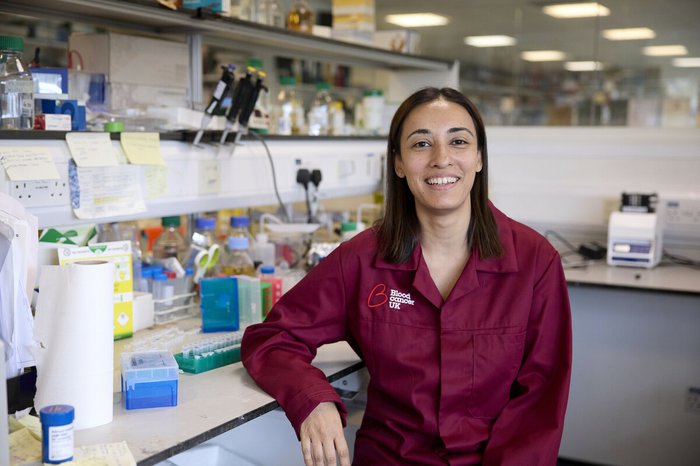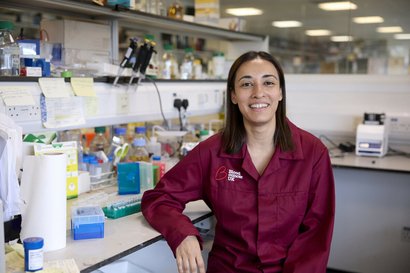Our research funding
Research breakthroughs have already changed the world for people with blood cancer. To reach our ultimate goal – a day when treatments and care have progressed far enough that no-one dies of blood cancer – we have to keep investigating and developing.
Our 2023-2024 Annual Report at a glance

Research funding overview
This year we invested £6 million in new research funding, a £5.3 million increase from last year. We've also developed the ways we spend in order to support researchers throughout their careers.
Our new, innovative translational research grants make sure that when the big advances do happen, they actually translate to better treatments and results for patients.
Our Patient Voice Grant Advisory Network has worked with us to review 84 grant applications this year.
Through our 23 new grants, we directly funded 53 researchers this year across 14 institutions. And we’re proud to say our funding is again well spread across the UK, covering nine out of all 12 regions.
We’ve made 11 project grants this year, with six being funded through our Omaze partnership – covering treatment priorities.
More on research
To discover the full list of all types of grants awarded, you can download our annual report and head to page 11. You might also be interested in exploring our current research projects or open calls for researchers.
Our new pilot grant scheme
We launched our new pilot grant scheme this year. These development grants, of up to £30,000 each, will help researchers develop the data they need to secure further investment.
Over the year, we made five grants for leukaemia, making a total investment of close to £148,000.
The Matthew Wilson Multiple Myeloma Fund
The MWMMF has funded two projects this year, investing over £630,000. One is developing a new diagnosis technique for non-measurable myeloma (NMM). The other project looks at enhancing the life of CAR-T cells.
Two fellowships of £319,000 each have also been awarded thanks to the MWMMF. One is for Aidan Haslam, who is looking into the detection and treatment of a plasma cell condition called MGUS (monoclonal gammopathy of undetermined significance).
The other is for Katrina Fordwor, who is investigating the role of a specific molecule in causing people with MGUS to then develop myeloma.
Research partnerships
We formed our first international partnership with the Leukaemia and Lymphoma Society (LLS) in the US. This ambitious project will establish a screening process to identify people at high risk of myeloid blood cancers.
Our continuing partnership with the Medical Research Council this year funded the leukaemia research fellowship of Dr Laura Jardine at Newcastle University. We teamed with the Follicular Lymphoma Foundation to fund a project transforming the treatment and management of follicular lymphoma, led by Dr Kim Linton at The Christie in Manchester.
We also established a partnership with Cancer Research UK on the Cancer Tech Accelerator Programme, which supports innovative technologies that can advance the early detection, diagnosis, monitoring or treatment of blood cancer.

Our research
Our £500 million investment in research since 1960 has helped transform treatments and taken us to the point where beating blood cancer is now in sight. Our researchers are working to finish the job.
More About This